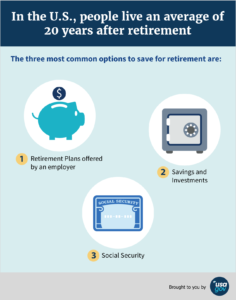Encouraging Financial Wellness at Your Agency
Date:Tuesday October 1, 2024

No matter the amount of money an individual person makes, the way they use that paycheck is going to have a major impact on their financial wellness in the long run. As an agency, you cannot control how your team chooses to spend and save, but you can offer resources that help first responders to establish a path forward that protects their and their families’ interests.

Have Frank Discussions About Pensions and Retirement Plan Options: Different agencies have different levels of retirement support for their teams, and unfortunately these plans don’t always stay the same during a given first responders’ career. Rather than letting your first responders rely on a pension plan without learning about it, help them to understand both the benefits they are entitled to and the options they have for supplementing their retirement savings. A realistic and positive look at their options can help them see how small sums saved now can translate to a lot of peace of mind in retirement.
Increase Understanding of Health Insurance and Life Insurance Options: Your health insurance provider should be able to have a representative answer questions from your first responders, and having an event like this can help team members select wisely among options you offer in your agency’s plan, such as potentially selecting a high-deductible plan with a Health Savings Account, if such an option is available. Life insurance is also a realistic need both in and out of first responder fields, and helping your team to make sense of the many products available and narrow down their options for term or whole life insurance, preferably without a sales pitch for one or the other, can help them feel that their families will be cared for in the event of a tragedy.
Discuss the Benefits of Short-Term, Medium-Term, and Long-Term Savings Starting When First Responders are Young: While of course there are individuals of many ages in your agencies, first responders often start working at fairly young ages, when they might be less likely to begin saving. However, it is important to set the habit of saving well from as early an age as possible, since saving money over a longer timeframe creates better returns through compound interest. Consider discussions and seminars on finding ways to save early and often, even if the amounts are small at first. Recognizing the benefits of saving up for events like paying for a wedding or a home down payment can help young first responders to visualize their goals, since retirement is not the only savings goal that most first responders have.
Resources to Share With Your First Responders About Financial Wellness:
- The National Financial Educators Council has resources for you to bring financial literacy training into the workplace.
- The Consumer Financial Protection Bureau has a wealth of financial resources that aren’t attached to particular institutions, including this guide to Workplace Financial Wellness.
There are some financial planning agencies, like Financial Cop, who tailor their financial trainings to first responder agencies. They may be a valuable resource for you, though this is a for-profit business and just one example of a variety of first-responder-centric services that are available.
